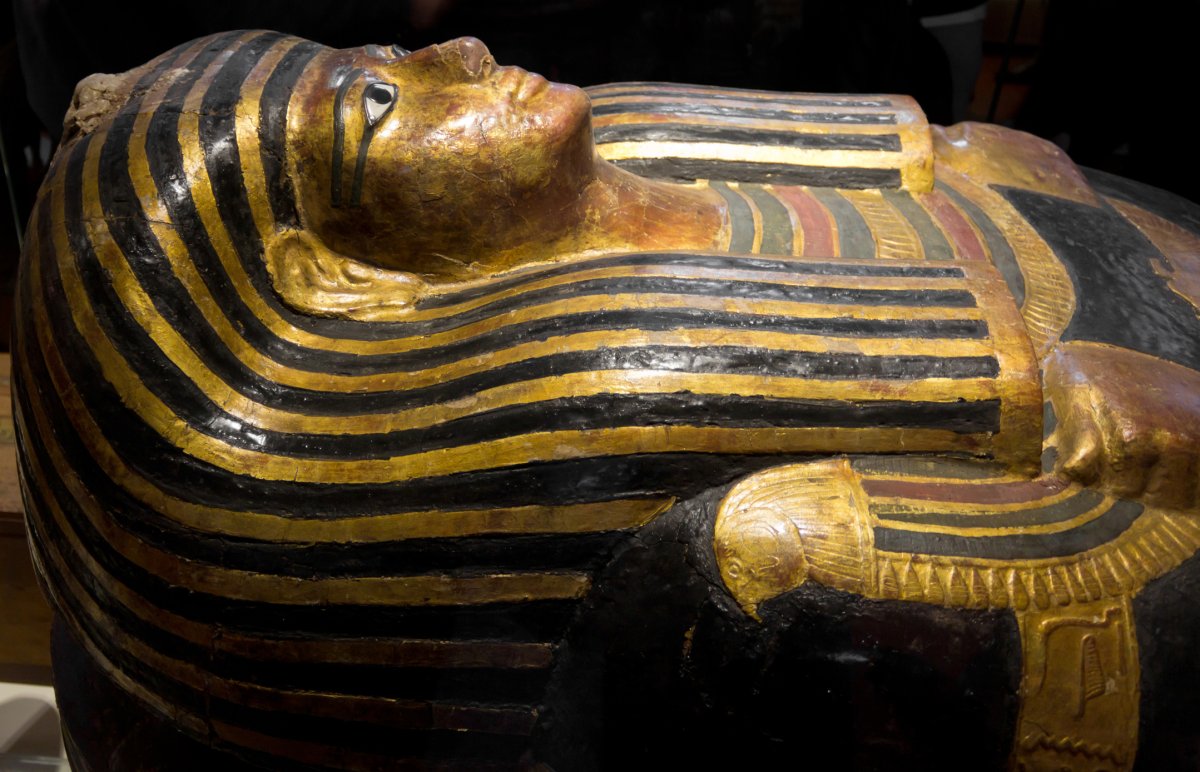A team of scientists at the Warsaw Mummy Project recently discovered how a pregnant mummy's fetus was "pickled" over the years.
In April 2021, scientists discovered that a mummy acquired by the University of Warsaw in the early 19th century and believed to belong to a male priest was in fact a pregnant woman.
X-rays and computer tests revealed the woman to be seven months pregnant at the time of death. Researchers said this is the first known case of a well-preserved pregnant mummy.
The Warsaw Mummy Project team this month published a paper describing the recent findings that revealed why the fetus was preserved so well. The full analysis was published in the Journal of Archaeological Science.
As the team explained in a blog post, the fetus began to "pickle" in the sense that the pH of the corpse and the uterus became more acidic. As time went on, the concentrations of ammonia and formic acid increased and replaced the oxygen inside the corpse.
The mother's bones were preserved and her uterus was "hermetically sealed" from the salt used during the mummification process. This process preserved the fetus' hard tissue inside the womb, but the acid inside the uterus caused the fetus' bones to disintegrate.
"This process of bone demineralisation in acidic environment can be compared to an experiment with an egg," the researchers wrote. "Picture putting an egg into a pot filled with an acid."
The scientists explained that the minerals from the eggshell dissolve in the acid while the inside of the egg remains intact.
The scientists compared the process to the famed European "bog bodies" which were naturally preserved in raised bogs. According to the Smithsonian, bodies found in bogs decomposed "extremely slowly" due to high acidity and low oxygen levels.
The team described that similar to the mummified fetus, some of the famed bog bodies did not have bones due to a similar decomposition process.
Scientists wrote that they are still unsure why the fetus was not removed from the deceased woman's body when the rest of her organs were taken out, a common mummification practice.
While the reason is unknown, the team said that this discovery could prove other preserved mummies could also unknowingly have been pregnant. The scientists explained that radiologists conducting scans on mummies potentially missed fetuses because they may have lacked well-preserved bones and were essentially invisible to an X-ray scanner.
Instead of looking for bones, scientists said it is more important to look at the soft tissues near the pelvic area.
Scientists have nicknamed the mummy "The Mysterious Lady" and said she may provide new possibilities for pregnancy studies as well as the unresearched aspect of pregnancy in ancient Egyptian religion.
"Most importantly, there is a very high probability that there may be mummies of pregnant women in other museum collections," the scientists wrote. "They may have not been sufficiently analyzed in this aspect. Now, considering our findings, it is only a matter of time before the next mummified pregnant woman is discovered."
Newsweek reached out to the Warsaw Mummy Project for comment.

Uncommon Knowledge
Newsweek is committed to challenging conventional wisdom and finding connections in the search for common ground.
Newsweek is committed to challenging conventional wisdom and finding connections in the search for common ground.
About the writer
Samantha Berlin is a Newsweek reporter based in New York. Her focus is reporting on trends and human-interest stories. Samantha ... Read more
To read how Newsweek uses AI as a newsroom tool, Click here.








